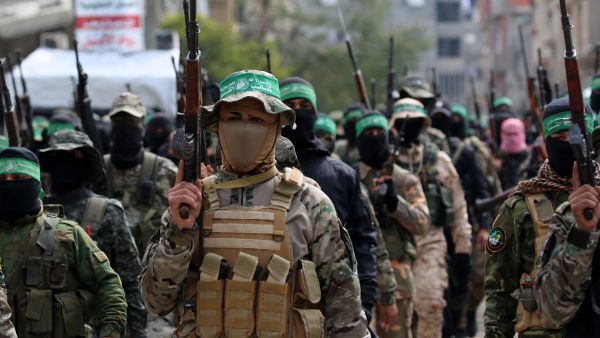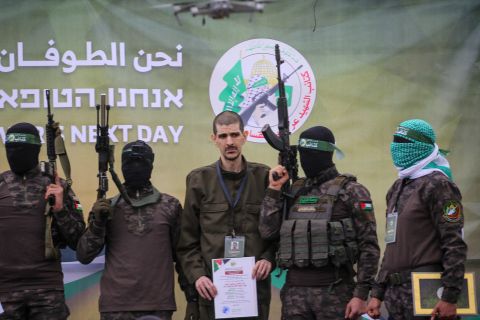ALBAWABA - As the first part of U.S. President Donald Trump's plan for peace in Gaza comes to an end, attention is turning to the second part, which could change the political and security situation in the enclave or start a new kind of war.
Most of the first steps, like the ceasefire, restoring calm, and exchanging hostages, have been taken, but the issue of returning the bodies of the remaining Israeli captives is still holding up the end of phase one. However, U.S. and regional mediators are still determined to move forward, giving Hamas more time to work things out.
Israel has limited the amount of humanitarian aid that can be sent to Gaza because of the delay, saying that Hamas broke the agreed-upon schedule. Analysts say that Tel Aviv is getting ready to use the disagreement as a bargaining chip in the next round of talks, which will focus on Hamas's disarmament, a very controversial issue.
Mohsen Abu Ramadan, a political analyst, told Erem News that disarmament will be a major demand of Prime Minister Benjamin Netanyahu's government in the second phase.
Abu Ramadan said, "If Hamas doesn't agree, Israel will probably respond by putting economic pressure on them and limiting humanitarian aid, which will slow down the flow of aid or make it harder to rebuild."
He said that Hamas suggested a five-year ceasefire with a joint Palestinian-Arab committee in charge of the weapons issue, but it's unlikely that either Washington or Tel Aviv will agree to the idea.
Abu Ramadan said that the next phase "will be politically and diplomatically complex," but he ruled out a return to full-scale war. Instead, he predicted an indirect conflict, a "war of pressure" over aid, resources, and rebuilding. This could lead to a technocratic government in Gaza led by an international figure like Tony Blair.
Arguments About Bodies Slow Down Progress
Mustafa Ibrahim, a political analyst, said that Israel is still holding up the transition to the next phase because it says Hamas has not returned all of the bodies of Israeli soldiers. Hamas, on the other hand, says that a number of them are still buried under buildings that have fallen down and can't be found without heavy machinery.
Ibrahim said, "Even though Hamas gave up some of the bodies and admitted the problems, Israel responded by closing crossings and stopping aid." He also said that Tel Aviv's pressure is likely to continue even after Washington gets involved.
Worry about a "Non-Traditional" War
Ibrahim said that Hamas's weapons, Israel's plan to pull out, and the group's continued political role were the main things that could start fighting again. He said that limited military or coercive pressure could start again before phase two officially begins, especially after a recent phone call between Trump and Netanyahu that hinted at "new coordinated steps."
The main worry for Palestinians, he said, is to keep the war from starting again. However, Israel could use "non-military warfare" like tightening border controls, blocking fuel and aid, or slowing down rebuilding.
Ibrahim said, "Hamas won't give up its weapons unless there is a national consensus," and "Israel keeps asking for Hamas to be completely disarmed and not allowed to participate in politics as a condition for any future settlement."
The second part of Trump's plan for Gaza is still unclear because both sides are sticking to their hardline positions and there is no clear timeline for when it will be put into action. People think Trump will soon announce the next steps, which could include a "Peace Council" to run Gaza. However, there is still a lot of uncertainty and mistrust about what will happen next.










